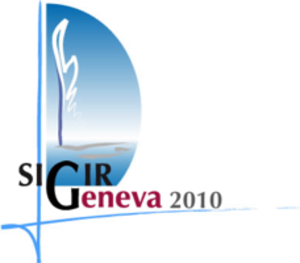Knowledge Management
Knowledge Management is a multi-disciplinary approach to making the best use of knowledge. Efficient and effective searching is a key component. Eurospider's know how covers various aspects of knowledge management.
Thomas Murphy reported at the DA-3 workshop on the retrieval effectiveness of LLM-based search methods to find relevant judgments of the Swiss Federal Supreme Court. To determine the search quality - whether relevant judgments are effectively found or not - a test collection is essential.
Eurospider’s digital assistant (DA) supports the verbal and classificatory indexing of the books and essays that libraries want to make searchable according to content criteria. In the past, subject indexing was regarded as a central and demanding task for libraries. Today, the future of this content indexing process is the subject of endless discussions and projects. Eurospider’s DA is intended to help develop a strategy that will reduce the time and cost of indexing, increase indexing quality and enable cooperation between national and international libraries.
InnoBib.News provides the latest information on innovation at libraries and other memory institutions.
In 1985 a well-known publication in 1985 reported on a retrieval experiment where lawyers searched for legal information. They found only about 20% of the potentially relevant documents. The authors concluded that full text search has serious limitations.
The SIGIR 2010 Industry Track organized by David Harper (Google, Switzerland) and Peter Schäuble (Eurospider, Switzerland) was a success. In the morning session four keynote talks were presented from influential technical leaders (Baidu, Google, Bing, Yandex). During the afternoon session, seven presentation showed interesting, novel, and innovative ideas from the search industry.
Information Retrieval
The objective of Information Retrieval (IR) is to search large data collections for information relevant to a user’s information requirements. The term “information retrieval” was coined by Calvin Mooers in 1950. Like “research” the word “retrieval” does not refer to refinding something. It rather relates to the information retrieval paradox: “If I knew what I was searching for, I wouldn’t be searching for it.”
Information retrieval is focuses on three dimensions: systems and applications, theory and models, evaluation. Various retrieval models exist, such as Vector Space Model (VSM) and probabilistic and language models. For evaluatio,n recall and precision are often used. SMART was an early retrieval system that dealt with all three aspects. RankBrain is a more recent retrieval system based on TensorFlow.
WebGND
The Integrated Authority File (German: Gemeinsame Normdatei or GND) is an international authority file used and maintained by the German National Library (German: Deutsche Nationalbibliothek or DNB), all German-language library associations, the Zeitschriftendatenbank (ZDB) and many other institutions. WebGND is an online application that supports navigation and search within this large database which consists of more than 11 million records covering personal names, corporate names, meeting names, geographic names, topical terms and uniform work titles.








